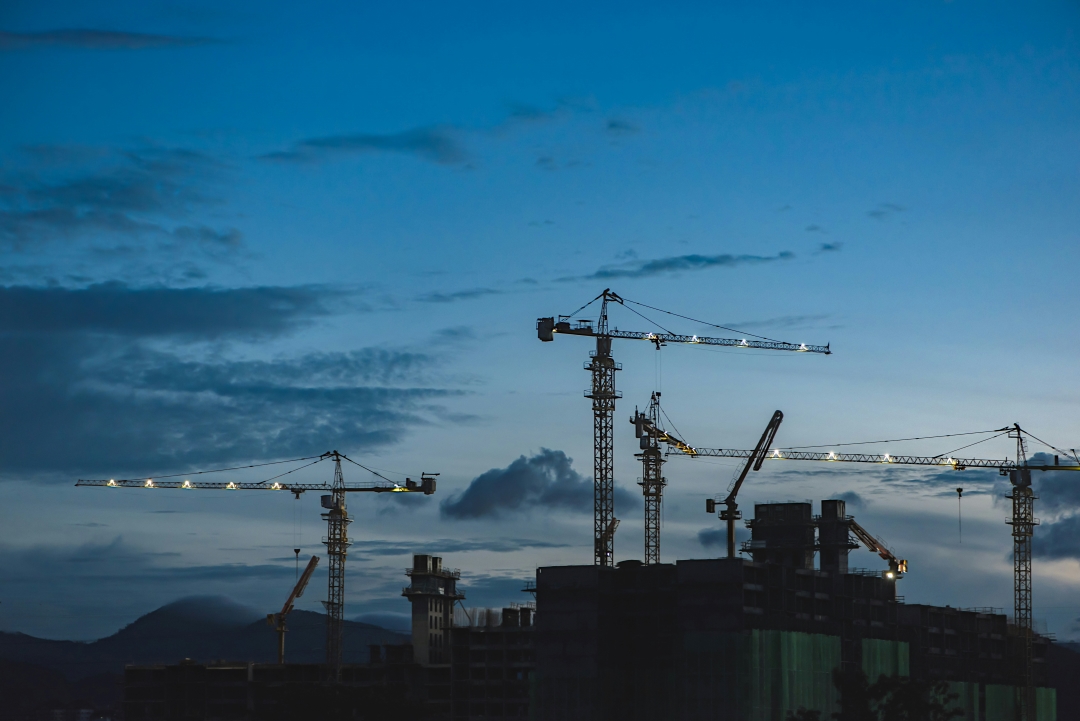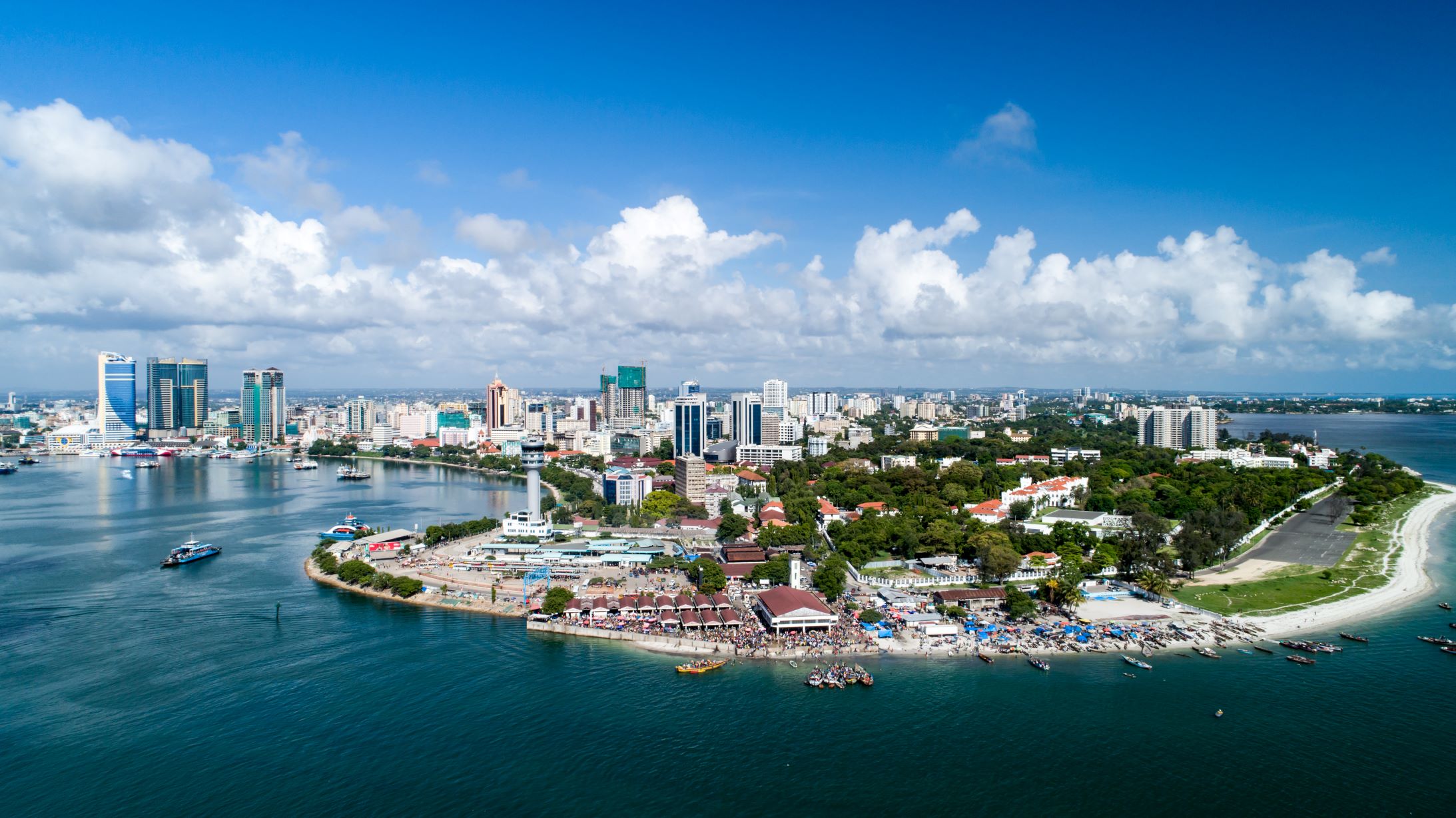Africa
South Africa, Nigeria, Egypt Top Globally for Investment Migration
Africa is continuing its trajectory as a growth market for residence and citizenship by investment programs, with a 46 percent increase in enquiries in 2022, according to the Africa Wealth Report 2023. The report, published by Henley & Partners, highlights that South Africa, Nigeria, Egypt, and Algeria were among the top 20 nationalities in enquiries received last year for investment migration.
The Henley Global Citizens Report Q3 2022 revealed that South Africa and Nigeria were in the top 10 countries globally in terms of applications in 2022, and other African countries generating high levels of applications were Algeria, Egypt, Ghana, Kenya, Morocco, and Uganda.
“Africa’s wealthiest countries have the highest number of applicants on the continent for residence and citizenship by investment programs,” Weyinmi Oritsejafor, IMCM – Client Advisor, Henley & Partners UK, told Business Insider Africa. “This gives credence to the fact that affluent African investors are looking to protect their wealth but also significantly enhance their prosperity, enabling them to leave a greater legacy for future generations,” she added
Source: Business Insider Africa
East Africa
EAC-EU Develop Joint Roadmap to Foster Digital Transformation in East Africa
The East African Community (EAC) and the European Union (EU) have committed and agreed to foster a human-centric digital transformation in East Africa. The agreement centred on utilising digital technologies and innovations for regional integration. The mutual agreement came after a two-day conference facilitated by the Digital for Development (D4D) Hub, which unites key stakeholders from the EAC region and European partners. The EAC Secretary General, Dr Peter Mathuki, who officially opened the two-day conference, said that the EAC is keen on creating a single regional digital market comprising an online market, a data market, and a connectivity market. “Digital skills, innovation, infrastructure, financing and a conducive legal and regulatory environment underpin this. Achieving this requires digitalisation in various sectors and integration platforms,” said Dr Mathuki when opening the 1st EU-EAC Regional Conference on Digital Transformation in the East African Community in Arusha.
Source: Daily News Tanzania
Egypt
Egypt Signs Deals with China for Green Energy Projects Worth USD 14.75 Billion
Egypt and China recently signed two major agreements for green energy production in the Suez Canal Economic Zone (SCZONE). The agreements were signed during Egypt’s participation in the third session of the Belt and Road Forum for International Cooperation in Beijing.
The first agreement aims to establish a project to produce green ammonia and green hydrogen from renewable sources with an investment of USD 6.75 billion. The second agreement was a memorandum of understanding (MoU) between SCZONE and United Energy. The MoU aims to develop a potassium chloride production complex using renewable energy stations, with an investment of USD 8 billion. Egypt’s Prime Minister, Moustafa Madbouly, expressed Egypt’s interest in expanding green energy projects and providing incentives for investors in this field. He said that the SCZONE has become one of the region’s most important hubs for green energy production.
Source: Daily News Egypt
Kenya
Private Capital Inflows to Kenya Rise Fastest in Africa
Kenya’s private capital investment was the second highest in Africa last year after South Africa’s, having risen nearly five times to USD 1.1 billion. This is an increase from the USD 226 million recorded in 2021, according to the Finance in Africa report published by the European Investment Bank. The new report also found that the four markets of Kenya, South Africa, Egypt, and Nigeria accounted for nearly two-thirds of all private capital investments across the continent during the year. According to the study, the financial services sector attracted the biggest share of private capital, accounting for almost 40 percent of the investments last year. Industrials, consumer products, information technology, renewable energy, healthcare, conventional energy and telecommunications followed this. The East African region emerged as the most competitive in terms of share of assets held by banks, predominantly driven by Kenya, where the top three banks have a 37 percent share of bank assets. Kenya was also rated the most advanced financial market in the region, with a credit-to-GDP ratio of 30 percent, followed by Burundi at 24 percent and Djibouti at 21 percent.
Source: Business Daily
Morocco
Morocco Among Top African Destinations for Chinese Investment
Morocco has emerged as an attractive African destination for Chinese investments over the next decade, the Economist Intelligence Unit (EIU) revealed in its 2023 report. The report highlights Morocco’s position as the 33rd most attractive investment destination out of 80 countries. The analysis conducted by EIU encompassed 200 indicators grouped into two main categories: opportunities and risks. Factors such as market expansion, natural resources, supply chain development, and technology and innovation levels were evaluated within the opportunities category. Meanwhile, the risk assessment involved bilateral relations with China and operational and financial risks for foreign investors. Morocco’s appeal stemmed from its performance in various indicators, particularly in market expansion and supply chain development. The North African country is ranked as China’s ninth most attractive destination for supply chain development investment. Besides Morocco, the report highlighted 11 other African countries as attractive investment destinations for Chinese companies over the next decade. South Africa led the pack at 13th globally, followed by Egypt (17th) and Morocco (33rd).
Source: Morocco World News
Nigeria
State Announces USD 13.5 Billion Investment Commitments to Boost Oil Output
The federal government announced it had secured a USD 13.5 billion investment commitment from international oil companies and independent producers to boost the country’s crude output in the next 12 months. In a statement on the State House’s website, the special adviser to the President on Energy, Mrs Olu Verheijen, said the partnership was carried out alongside the Nigerian Upstream Petroleum Regulatory Commission. Explaining that the engagements, which began recently, have now been wrapped up with 15 leading operators, Verheijen noted that the sessions where the multi-billion-dollar pledges were secured were held in Lagos and Abuja. Nigeria has been unable to meet its Organisation of Petroleum Exporting Countries quota for over 36 months, prompting the group to slash the country’s allocation from over 1.8 million barrels per day (bpd) to 1.742 million bpd for this year and then to 1.38 million bpd in 2024. The situation has heavily impacted the liquidity in the foreign exchange market in Nigeria, as the country earns over 90 percent of its FX from the export of crude oil. Nigeria blames massive oil theft and incessant asset vandalism for the challenge.
Source: The Guardian
South Africa
South Africa to Supersede Egypt as Africa’s Biggest Economy
The South African economy has been predicted to bypass Egypt’s and Nigeria’s to become the biggest on the continent, according to the International Monetary Fund (IMF) in its World Economic Outlook. The country happens to be Africa’s most industrialised nation. Its gross domestic product is expected to reach USD 401 billion in 2024, compared to USD 395 billion in Nigeria and USD 358 billion in Egypt at the current price. This current price refers to the most recent selling price of an exchange-traded funds currency, product, or precious metal. It is the most dependable indication of the securities’ current value.
Economist Yvonne Mhango told Bloomberg that the IMF’s predictions reflect where it expects real changes to occur. In addition, South Africa reportedly possesses the potential for even quicker development, anywhere from 2.5 percent to 3 percent, if it handles its electrical supply problems, removes logistical obstructions, and implements other required changes.
Source: Independent Online
Zimbabwe
Zimbabwe Ranks Among World’s Top Diamond Producers
Zimbabwe ranks as the seventh biggest diamond producer in the world with an annual output of over 4 million carats worth USD 420 million, state-run Zimbabwe Broadcasting Corporation news has reported, citing the latest production statistics by the Kimberley Process Certification Scheme (KPCS). In terms of diamond output, the Southern African country was only behind Botswana, Russia, Angola, Canada, South Africa and Namibia, according to the KPCS, a regulator of trade and production of diamonds globally. Zimbabwe aims to produce 7 million carats of diamonds this year, and the sector is targeting an annual revenue of USD 1 billion. The Zimbabwean Government expects the mining sector to reach a USD 12 billion market value by the end of this year.
Source: Xinhua
________________
Reports
European Investment Bank | Finance in Africa
Africa is a continent of opportunity and potential. If you believe in the transformational impact of development finance, you believe in Africa. But the current challenges cannot be underestimated. Every effort needs to be made to address these challenges. Economic instability, climate change and gender inequality prevent millions of people from reaching their full potential. The continent is still recovering from the COVID-19 pandemic, and Russia’s invasion of Ukraine further disrupts the global economy. Climate change is also being felt across Africa. The continent is particularly vulnerable to the effects of the changing climate, such as extreme weather events, rising sea levels and desertification.
To face these challenges, resources need to be mobilised. Finance in Africa 2023 highlights how the EIB can best support the African financial sector so that it can, in turn, bolster the development of a thriving and resilient private sector. Many positive developments are taking place in Africa, and this report sheds light on how finance can accelerate this trend. The continent is increasingly connected to global financial systems, and bond markets and private capital markets are vibrant and growing, with the fintech sector also playing its part in supporting this change.
Click here to read and download the full report.
IRENA | Geopolitics of the Energy Transition Critical Materials
More than any other sector or industry, energy is a core driver of socio-economic outcomes and geopolitical landscapes. As the world transitions toward more resilient, inclusive and clean energy systems, the essential role of renewable energy is more apparent than ever before. This transition is set to induce far-reaching and transformative changes, and recent years have demonstrated yet again how the global energy system is intricately intertwined with geopolitics.
This report’s focus pivots to a theme that embodies both the future and the past. It is abundantly clear that the energy transition will require a dramatic increase in the supply of critical materials. It draws on various sources to provide a balanced and nuanced perspective on the many complex issues at play. Projections for rapidly growing materials demand create both opportunities and the spectre of geopolitical risks. A renewables-based energy transition allows one to rewrite the script for extractive commodities and ensure their value chains are more inclusive, ethical and sustainable.
Click here to read and download the full report.
UNCTAD | Trade and Development Report 2023
The report highlights how market concentration in key sectors, such as the trading of agriculture commodities, has grown since 2020, deepening the asymmetry between the profits of top multinational enterprises and declining labour share globally. It finds that unregulated financial activity significantly contributed to the profits of global food traders in 2022. Corporate profits from financial operations appear to be strongly linked to periods of excessive speculation in commodities markets and to the growth of shadow banking. This unregulated financial sector operates outside traditional banking institutions.
During the period of heightened price volatility since 2020, certain major food trading companies have earned record profits in the financial markets, even as food prices have soared globally and millions of people faced a cost-of-living crisis. Food trading companies take positions and function as key participants in financial markets, but this shadow banking function is not regulated in the current financial system. Patterns of profiteering in the food trading industry reinforce the need to extend systemic financial oversight and consider corporate group behaviour within the framework of the global financial architecture.
Click here to read and download the full report.
UNCTAD | Commodities and Development Report 2023
Diversification brings economic benefits, but it may have drawbacks if not accompanied by inclusiveness and sustainability policies. Producing more sophisticated products may widen inequalities if higher-skilled workers capture most opportunities and command higher wages. This could widen within-country disparities, which recent economic shocks have exacerbated. At the same time, diversification could create low-skilled jobs. There has been limited research on the links between diversification and inequality, and the results have been mixed.
The Commodities Development Report 2023 explores ways in which commodity-dependent developing countries can diversify their production and move up value chains to produce and export a wider variety of products – and do so in inclusive ways that protect the global climate. Most economic value chains originate in commodities, such as crude oil, copper, cotton or wheat. As a result, this causes fluctuations, leading to volatile incomes and slow economic growth for commodity-dependent developing countries. This report presents an analysis of 182 countries showing that overall export diversification is associated with greater inequality, but inequality declines as diversification generates more widespread opportunities within the economy.


